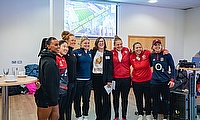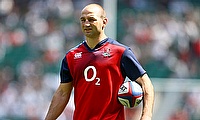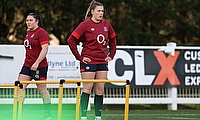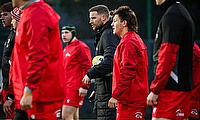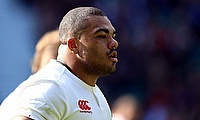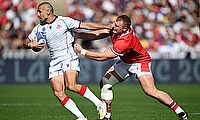Will England have repeat success in this year's Six Nations
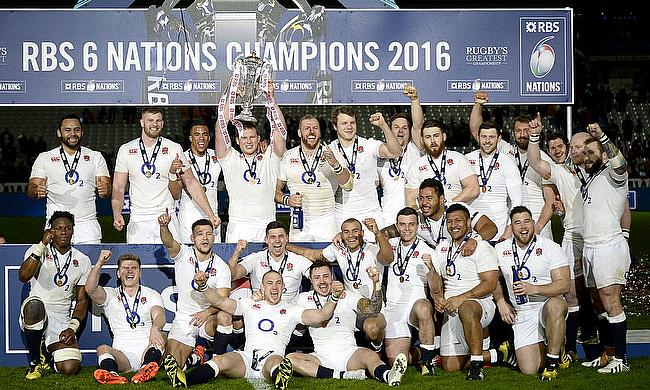
England go into the tournament favourites in this year's Six Nations
©PA
How do you top an unbeaten, unblemished first year as an international coach? For Eddie Jones, it’s to do it again.
England will enter the 2017 RBS Six Nations next month riding a Kanagawan wave of momentum; already reigning Grand Slam champions, Jones’ rebuilt squad then proceeded to reel off a further eight consecutive test wins in 2016 including a 3-0 whitewash of Australia in Oz and a perfect four-game Autumn series. There’s no two ways about it, England are undisputedly favourites for a second consecutive Six Nations title and potentially, a repeat of their grand-slam heroics.
It will not, however, be completely plain sailing for the Red Rose. Whilst Wales endured a tumultuous, and only occasionally convincing, Autumn of test rugby, their squad possesses a potent mix of experience (Alun Wyn Jones, Leigh Halfpenny) and exciting newcomers (Owen Williams, Thomas Young) which should see them back in contention for a top-three championship berth. Scotland and Italy under Vern Cotter and Conner O’Shea respectively meanwhile, have both shown promising advancements in the last twelve months. Plus, you never know exactly which French side will show up. All are capable of springing a surprise, against England even if, on paper, England are favourites to once again roll through Northern Europe.
But whilst it is perhaps myopic to dismissively rule out the other four competing nations, conventional logic dictates that it is Ireland who pose the biggest threat to English back-to-back Six Nations crowns, having finished as tournament runners-up in 2016 and notching an impressive, streak-breaking victory over New Zealand in Chicago in October. That the final game of this year’s tournament is between England and Ireland at the Aviva Stadium in Dublin in what could serve as a potentially championship-defining clash was probably not lost on the tournament schedule planners.
The main concern for England, whose squad for this year’s tournament shows little unforced deviation from the 33-men who triumphed so spectacularly 10 months ago, will be at loosehead prop with both Mako Vunipola and Joe Marler – England’s current one-two punch at the position – both serious doubts to miss the tournament in its entirety. The stage therefore is set for Leicester Tigers’ 21-year-old prop Ellis Genge, who made his England debut against Wales in May of last year and has remained an ever-present in Jones’ squads since. Whilse asking a once-capped, 21-year-old to anchor one of the most important positions in rugby is a gamble, Genge’s propping ability, ball-carrying and controlled aggressiveness on the pitch makes him a candidate to steal the tournament spotlight from the off. Should it be a risk too far, however, Jones also has Wasps’ Matt Mullan and the as-of-yet-uncapped Nathan Catt (Bath) at his disposal.
Erstwhile, injury to George Kruis will likely see an expanded role for Courtney Lawes in the tournament’s opening rounds, most likely alongside Maro Itoje. The mercurial Itoje however, could also see time at blindside flanker given the trio of injuries to Chris Robshaw, James Haskell and Billy Vunipola, Jones’ favoured backrow combination over the past year. Whilst Wasps’ Number Eight Nathan Hughes is set to be the most immediate beneficiary of the aforementioned injuries, and like Genge, also possess the potential to make a tournament-altering impact if given the matchtime, Teimana Harrison of Northampton is also one to keep an eye on with the 24-year-old flanker set to be afforded a much greater role within the English gameplan.
Whilst injuries have forced a reshuffle from the English pack which steamrolled through the tournament last season, a sharp contrast sees Jones and England not only have the luxury of an-established backline to once again assume main attacking duties but will also be boosted by the return of Anthony Watson and Jack Nowell, the previous incumbents on both wings. Even without Manu Tuilagi – who once again unfortunately finds himself on the treatment table – Owen Farrell’s intrinsic partnership with George Ford at 12 and 10, Elliot Daly’s emergence as a Southern Hemisphere-esque utilily back, and an exciting consortium of wingers to lineup outside them gives attack coach Glen Ella an embedded group of players with a plethora of additional options to supplement the former’s skillsets. In a shift from the traditional ‘English’ rugby approach, it could well be the English backline that propels the side to five potential victories in February and March.
A second Six Nations championship is by no means a guarantee for England, especially given the Irish stalking horse and the loss of a number of key individuals for parts of, or the entirety of, the tournament. But with Jones’ perfect record as head coach back on the line, a pipeline of exciting new talent ready to fill the voids left by injuries to seasoned campaigners and an established and embedded team spine which has already proven it’s world-beating (sans New Zealand) credentials, it would be a shock to see England finish as anything other than repeat champions or narrow runners-up.


